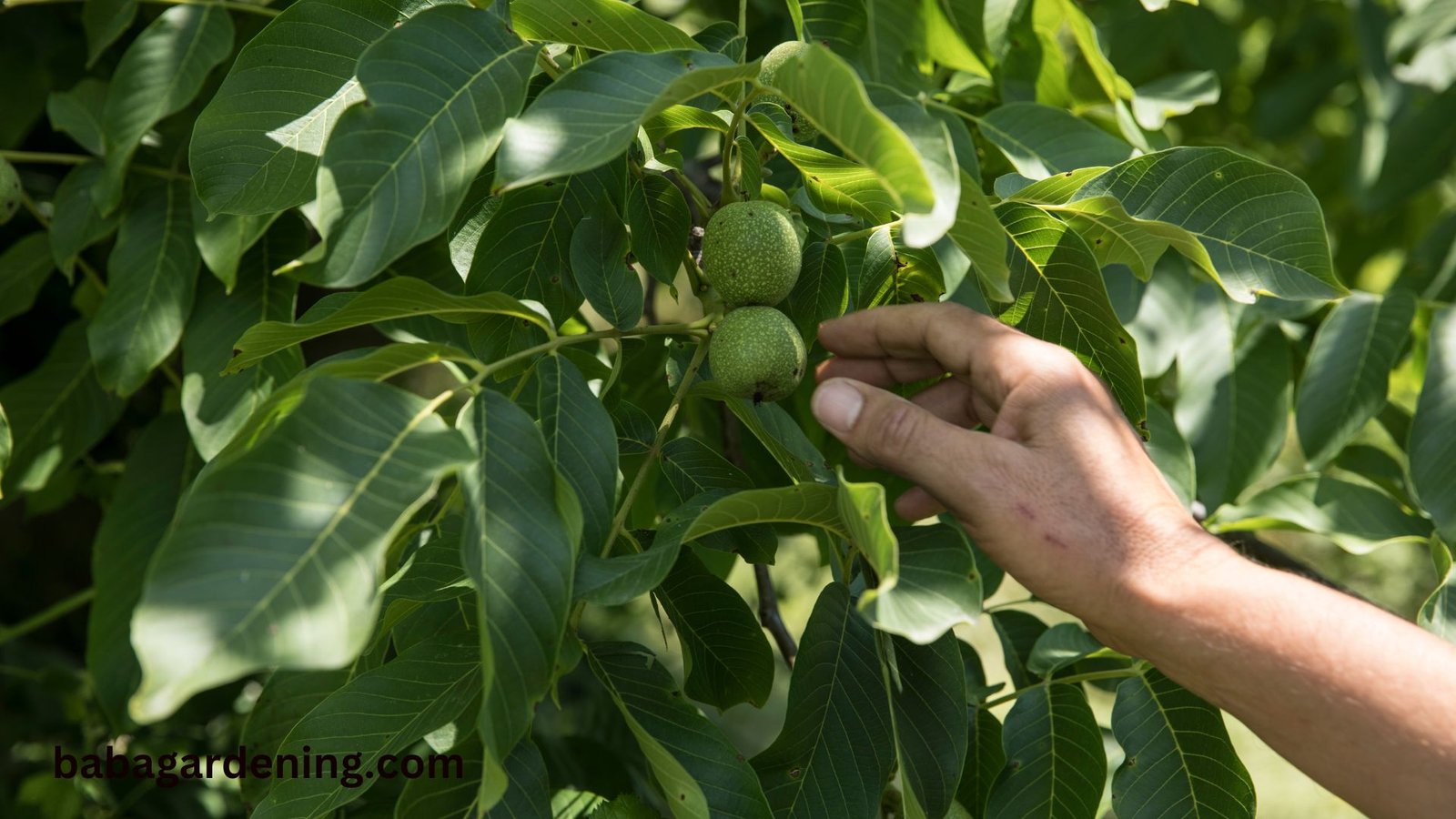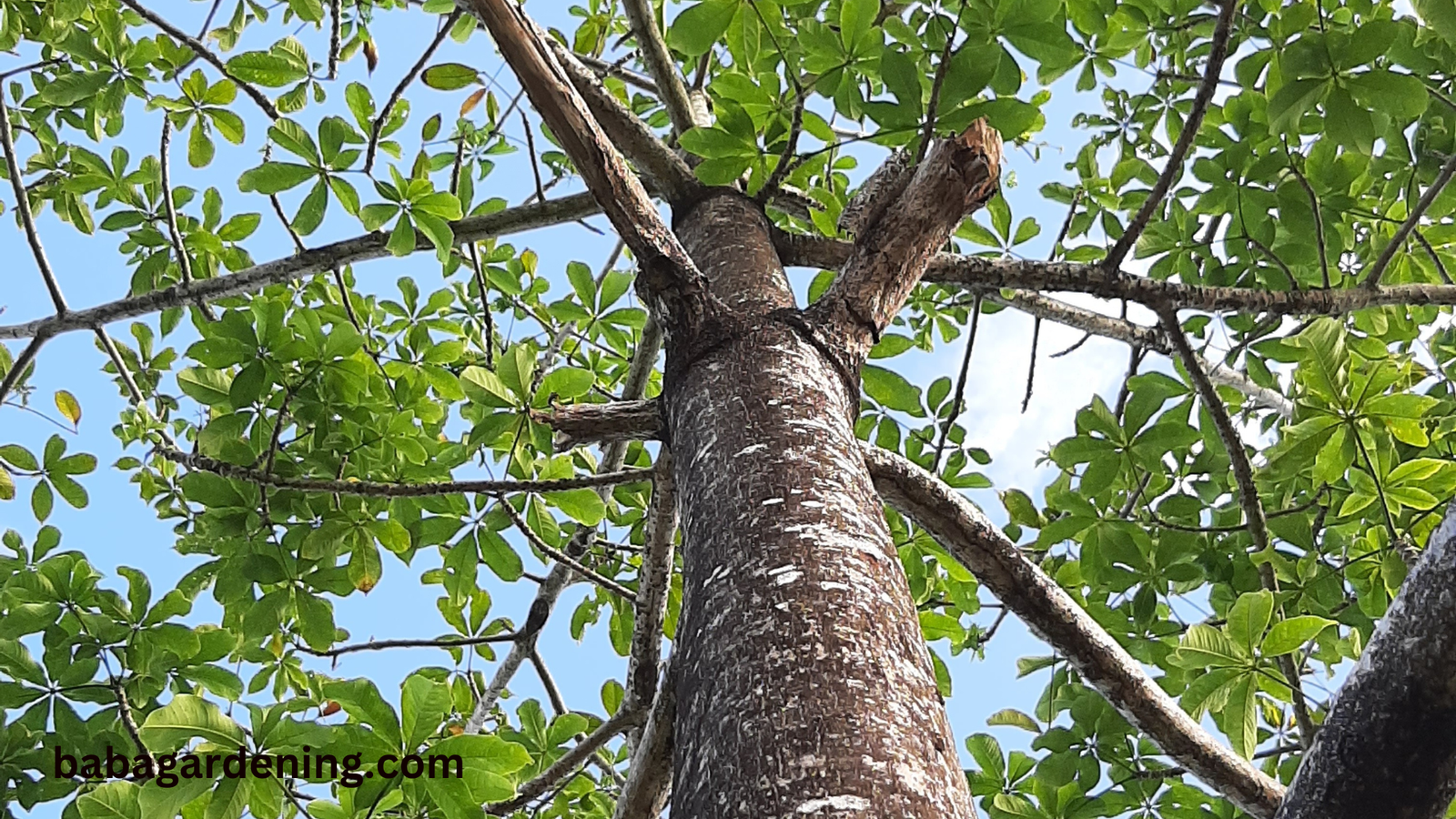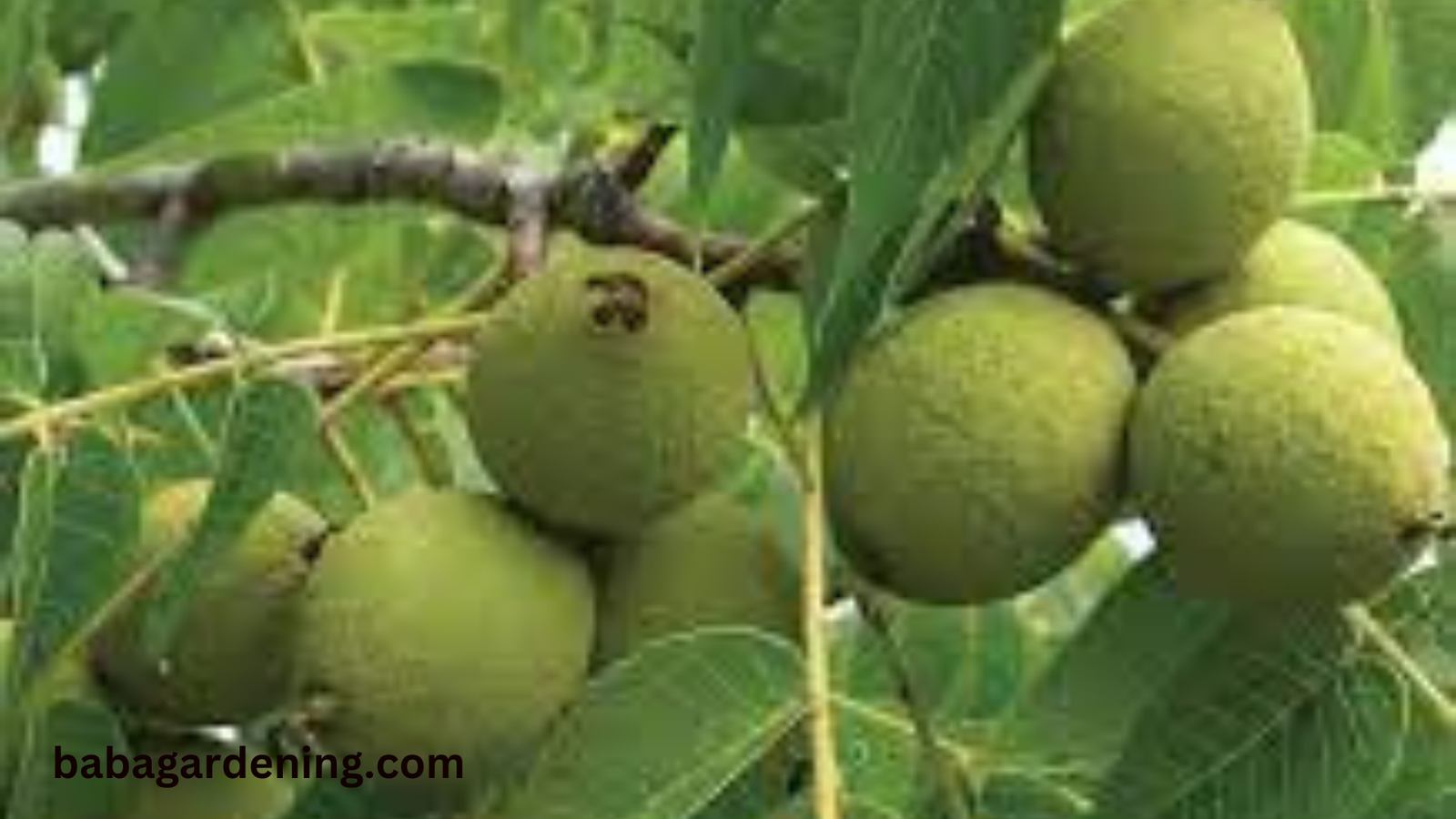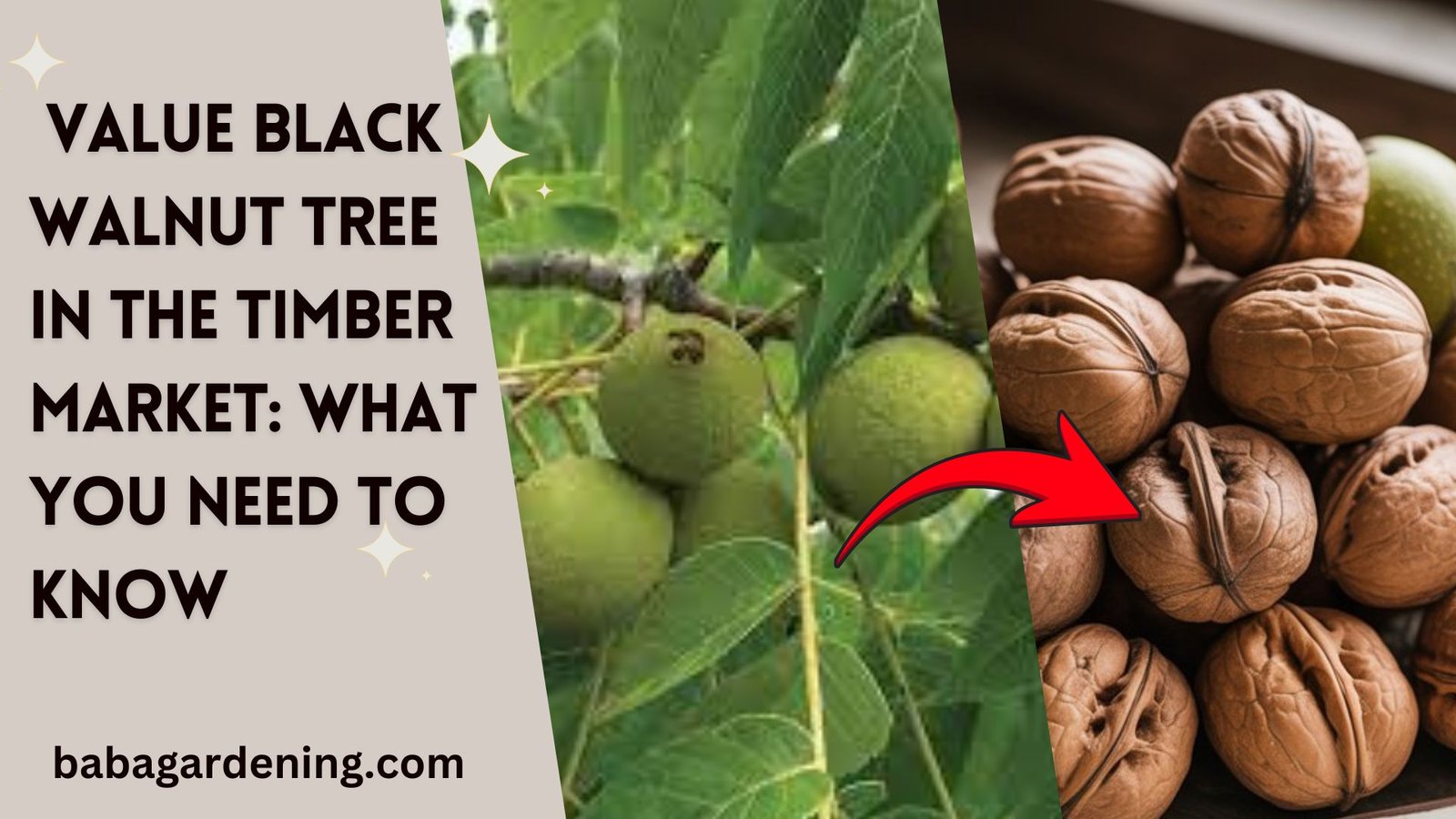Black walnut trees are one of the most valuable hardwoods in the timber market due to their rich color, durability, and high demand. The value of black walnut trees can vary greatly depending on factors such as tree diameter measurement, location, and wood quality. Whether you’re a landowner looking to sell your trees or simply curious about their worth, understanding what impacts their value is essential.
From the value of your timber to market demand, a variety of factors are involved in determining the value of your tree. In this guide, we’ll dive into everything you need to know to assess the black walnut tree’s worth and maximize its potential value in today’s market.
What Factors Impact Value Black Walnut Tree ?
The value of black walnut trees is determined by several factors, including the tree’s health and straightness. A healthy, defect-free tree with a straight walnut trunk tends to have a higher value because it can produce more usable lumber. Black walnut wood quality is another crucial element; the cleaner the wood, the better its market price. Additionally, larger trees are often worth more since they can yield more timber per log.
Another significant factor is market demand. In some regions, black walnut timber is in high demand for lumber production and fine woodworking, making the trees worth more. Pricing for trees based on location also plays an important role. Trees located near sawmills or markets in urban areas may be more expensive because of the ease of access for buyers of timber. The value of timber on the market may also fluctuate according to the availability and demand for walnut wood in particular areas.
MK Timber is Interested in Your Black Walnut Tree
If you’re thinking about selling your black walnut trees, companies like MK Timber are often interested in purchasing them. The timber buyers are experts in high-end hardwoods, and appraisal of black walnut trees is a part of their service. They assess your trees on the basis of the value of the timber, which includes the diameter measurement of the tree, DBH, and the quality of the trunk. Straight, clear trunks with no defects are sold at the most expensive prices.
MK Timber, like many other timber buyers, understands the nuances of the black walnut market price and provides fair estimates for the black walnut harvest. If you decide to sell, working with a trusted timber buyer ensures that you get the best value for your trees. Make sure to have a proper assessment before committing to a sale to avoid any surprises regarding tree removal costs.
Black Walnut Tree Value Calculator
One of the best ways to determine the value of black walnut trees is by using a black walnut value calculator. This tool can help you determine the value of your tree worth, based on key measurements like height, diameter and wood quality as well as pricing. It’s a vital tool for landowners, loggers and timber professionals looking for an accurate, fast estimate of the value of their trees.
The black walnut value calculator takes into account important factors such as timber pricing guide. Tree health, and the current demand for black walnut timber. By entering the DBH measurement, merchantable height, and tree grade, you can receive a fast estimate that will help you decide whether it’s time to sell your black walnut tree.

How the Black Walnut Tree Calculator Works?
The calculator for the value of black walnut uses an equation that takes into account the diameter of the tree and the height of the merchantable to determine the value estimated. It follows a simple idea that trees with larger diameters that have a straight trunk and no imperfections, are valued higher. The calculator also requests the price of a board per foot, and then adjusts it according to your location.
By inputting the DBH measurement (diameter at breast height) and selecting the tree grade (like veneer or common), you’ll receive an accurate estimate of how much your black walnut tree could sell for. Whether you plan to sell black walnut trees, harvest them, or simply estimate timber value, this tool is an excellent resource to make informed decisions.
What Is the Value of a Black Walnut Tree?
The value of a black walnut tree depends largely on its age and the straightness of the trunk. Trees that are older and free of defects generally produce more usable wood, making them worth more in the market. Trees with a healthy tree appraisal can bring in thousands of dollars, especially when the wood is of veneer-grade quality. They are desired for their beautiful texture and deep hue, making them perfect for furniture of the highest quality cabinetry.
Larger trees, usually with a diameter of more than 18 inches diameter, are particularly desirable. Smaller trees or ones with low quality black walnut wood are not as valuable. The market demand for timber for walnuts is also a factor in the cost of walnuts. Areas that have an abundance of walnut wood could have more expensive prices, whereas those who are less popular could yield less profit for the same high-quality tree.
What Affects the Value of Black Walnut Tree?
Black walnut’s value is determined by many factors, such as the location of the tree and the demand for it. For instance, trees located in areas that have higher demand for walnut wood will likely be worth more. Wood imperfections that can affect the value of trees, like knots or cracks could lower the value of trees. Trees with a lot of leaders or trunks that are split tend to be less appealing because they are less productive in producing logs.
Health is another important factor. Additionally, trees that are grown in forests generally have better chances of having a high value timber as opposed to those that are grown in urban areas in which the value of trees grown in urban areas may be considerably smaller.

How Black Walnuts Compare to Other Trees?
If you compare it with other hardwoods like cherry, oak or maple, black walnut is distinguished by its deep, dark shade and a fine grain, making it extremely sought-after for furniture manufacturing. Although many hardwoods are valued, the black walnut wood is distinctive due to its blend of durability, beauty and aplomb. Black walnut prices are typically more expensive over other woods due to its usage in top-quality products. such as gunstocks, veneers, as well as exquisite cabinetry.
In addition, black walnut trees tend to grow slower than other hardwoods, but the wood quality they produce is unmatched. This gives them a competitive edge in the market for premium wood.
Timber vs. Urban Tree Value
There is a huge difference in the value of the black walnut trees that are grown in wooded forests.
That are rich in timber as opposed to those in urban areas. The value of urban trees is usually less due to the possibility for injury from wires, nails, or other pollutants. Urban trees can also exhibit uneven growth patterns because of the limited space they have and poor growing conditions.
Forest-grown walnut trees, on the other hand, generally have fewer defects and produce higher-quality timber. The trees grow larger, healthier, and straighter in forests, resulting in a higher yield of usable lumber. Timber grown in rural areas where the land is properly maintained and managed often has fewer imperfections, making it valuable.

Common Pitfalls in Estimating Tree Value
When you are estimating the value of black walnut trees it is easy to overlook elements that affect cost. A common error is failing to take into account concealed wood defects that affect the value.
Another issue is mismeasuring the tree diameter measurement (DBH), which can lead to inaccurate estimations. Be sure to measure at the correct height (4.5 feet above the ground) and double-check your calculations to avoid mistakes. It’s also essential to consider factors like location-based tree pricing and the market demand for walnut timber in your area.
Top States Where Black Walnut Trees Are Most Valuable
Certain states within the U.S. have conditions that make them ideal for the cultivation of high-quality Black walnuts. States such as Indiana, Missouri, and Illinois are renowned for their quality black walnut wood. The soils of these states are fertile with a temperate climate and market for walnut timber in variety of industries.
If you live in one of these states, your black walnut trees may be worth more than those in areas. Where walnut production is not as common. This higher market price can be attributed to both the timber market demand and the high quality of trees grown .
Conclusion
In the end, the value of the black walnut tree is dependent on a myriad of aspects like size. The wood quality along with market trends. Utilizing tools such as the calculator for black walnut value will help you determine the amount your tree is worth. Based on the size measurement as well as other important factors. By understanding the factors influence the timber market value of black walnut tree, you can make informed decisions to harvest. Whether you’re a landowner or a timber buyer, knowing how to accurately assess the value of black walnut tree. Ensures you get the best deal in the market.
FAQs
1. How much can you sell a full-grown black walnut tree for?
A full-grown black walnut tree can be worth anywhere from $1,000 to $10,000 depending on factors like size, and location.
2. How much does a 5-gallon bucket of black walnuts weigh?
A 5-gallon bucket of black walnuts typically weighs around 20 to 25 pounds.
3. How do you calculate the value of a tree?
To calculate the value of a tree, you need to measure its diameter, height, and quality of wood,
in market .
4. Are black walnuts worth harvesting?
Yes, black walnuts are worth harvesting due to their high-quality timber and valuable nuts, which can good price in market.



